ABUAD Centre for Entrepreneurship Development and Poverty Eradication (ABCEDPE)—(From Rural to Global Poverty Eradication)
In 2024, following nine successful years of the Afe Babalola University Agricultural Expo (ABAEX), the management of Afe Babalola University took a significant step forward by establishing the ABUAD Centre for Entrepreneurship and Poverty Eradication. This initiative builds on the university’s long-standing partnership with UNESCO, particularly through the Entrepreneurship and Sustainable Development Chair, which has focused on fostering innovative solutions and sustainable practices. The new center aims to empower individuals with entrepreneurial skills while addressing poverty alleviation through comprehensive programs, workshops, and community outreach efforts. By integrating education, entrepreneurship, and social responsibility, the center aspires to create a lasting impact on the local and global communities.

The Founder/Chancellor, Aare Afe Babalola, stated this on the 16th of October 2024 during the International Day for the Eradication of Poverty Campaign. A program organized to commence the awareness creation for the eradication of poverty in our dear country, Nigeria. The ABUAD Community, ABUAD Alumni members, local communities, and discussants from across the frontier, like DR. GERALD SMITH, THE REGIONAL COUNSEL FOR AGRICULTURAL AFFAIRS, UNITED STATES DEPARTMENT OF AGRICULTURE.
Afe Babalola Day, first celebrated on October 18, 2024, is an annual event in Ekiti State, Nigeria, to honor the legacy of Aare Afe Babalola, a prominent lawyer, philanthropist, and founder of Afe Babalola University. The day commemorates his significant contributions to law, education, agriculture, and community development.
During the inaugural 2024 celebration, Afe Babalola demonstrated his strong support for economic empowerment in the society/community by donating N200 million to establish two cooperative societies (one for men and one for women).
- Philanthropy: Afe Babalola used the occasion of the first “Afe Babalola Day” to fund the creation of the cooperative societies.
- Economic Empowerment: The cooperative societies were specifically designed to provide members (artisans, farmers, and traders) with access to soft loans at a low 5% interest rate, a stark contrast to the high rates charged by commercial banks.
- Poverty Alleviation: Babalola’s initiative aims to lift people out of poverty and unemployment by enabling them to start or expand small-scale businesses.
- Advocacy: He has consistently urged farmers to form cooperative societies to access institutional support and loans from banks like the Bank of Agriculture to acquire modern farming equipment.
In essence, the 2024 Afe Babalola Day served as the launchpad for a major cooperative society initiative, highlighting his belief in the cooperative model as a tool for inclusive economic growth and sustainable development in Nigeria



The mandate of this center is to engage in policy formulations and research that are geared towards poverty eradication, wealth and job creation. It is aimed to provide social framework for Nigeria and Sub-Saharan Africa with a view to realizing full poverty eradication and making life worth living for the citizens. The center’s main objective is to ensure that rate of poverty is drastically reduced by at least 65% by 2024 and eradicate poverty in totality by the year 2030.
The thematic areas contained in the (ABCEDPE) framework include ensuring peace, justice, and strong institutions; engagement of cutting-edge technology across all sustainability areas and production technology; engagement in agribusiness, agricultural extension services, and development; institution of poverty eradication seminars and schemes; and increasing financial support for farmers, thereby making Nigeria and Sub-Saharan Africa economically independent. Key performance indicators and metrics from the review and evaluation of the 8-year ABAEX and ABUAD/UNESCO chair shall be used as the baseline data. Click below to see activities of ABAEX and the ABUAD/UNESCO Chair.
In like manner, ABUAD’s OGEES Institute is leading two innovative projects due to conclude between 2020 and 2024 on ‘Business and Human Rights Law and Practice in Africa’ which seeks to influence local, national and global policymaking in relation to equality, ethical procurements and protecting labour and human rights in key economic sectors.
The project has already resulted in the publication of a major book, and the research team is organizing workshops and national dialogue with key stakeholders on how to implement a national action plan on business and human rights to ensure poverty reduction, equal opportunities, transparency, and human rights safeguards in Nigeria’s economic sectors, especially the oil and gas industry.
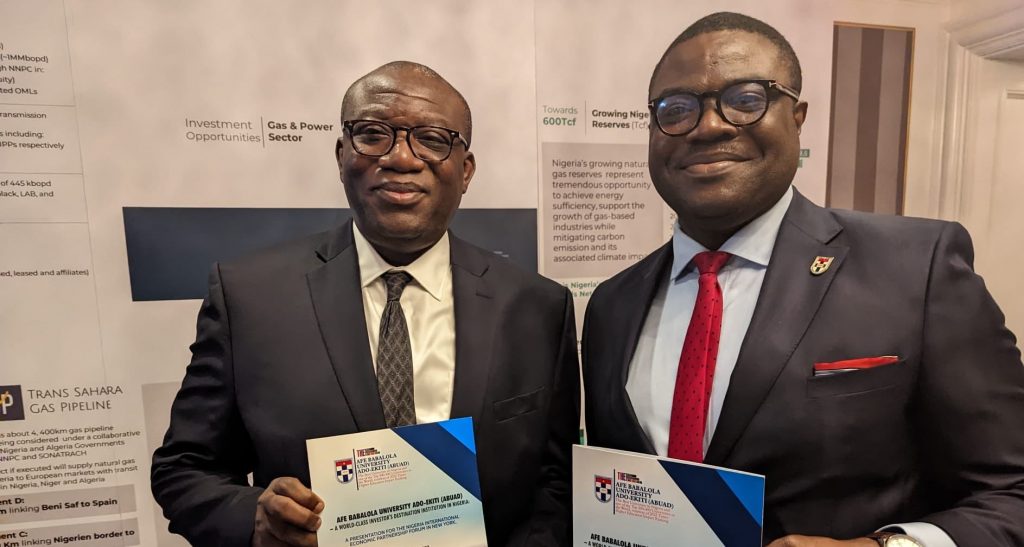
In like manner, In 2024, the ABUAD Founder/Chancellor in his column in the Vanguard dailies which he provided articles on major policy issues that required efficient and effective decision making.
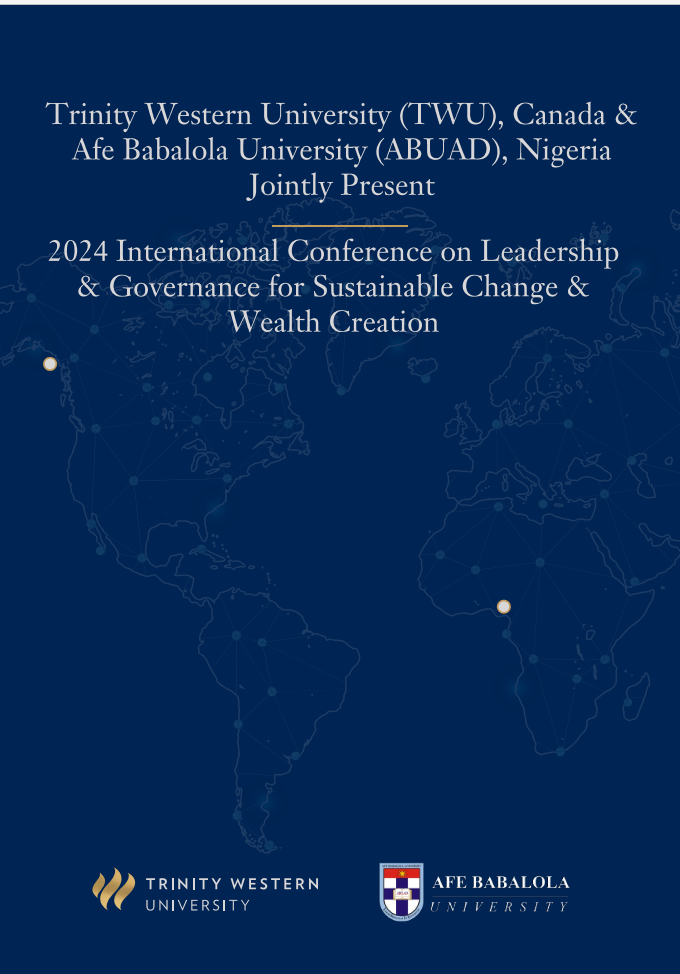
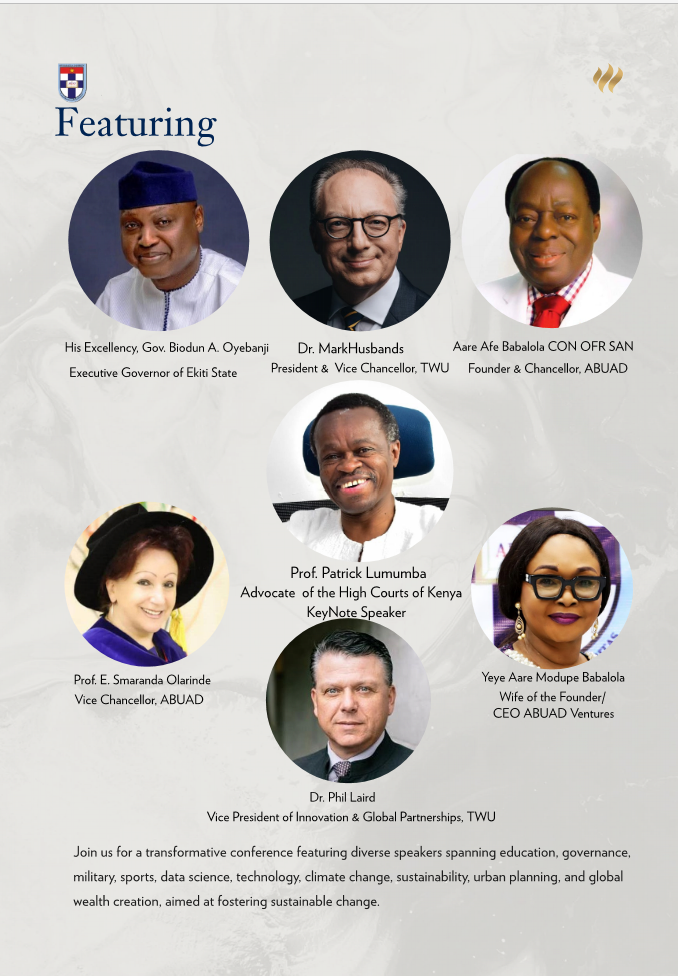
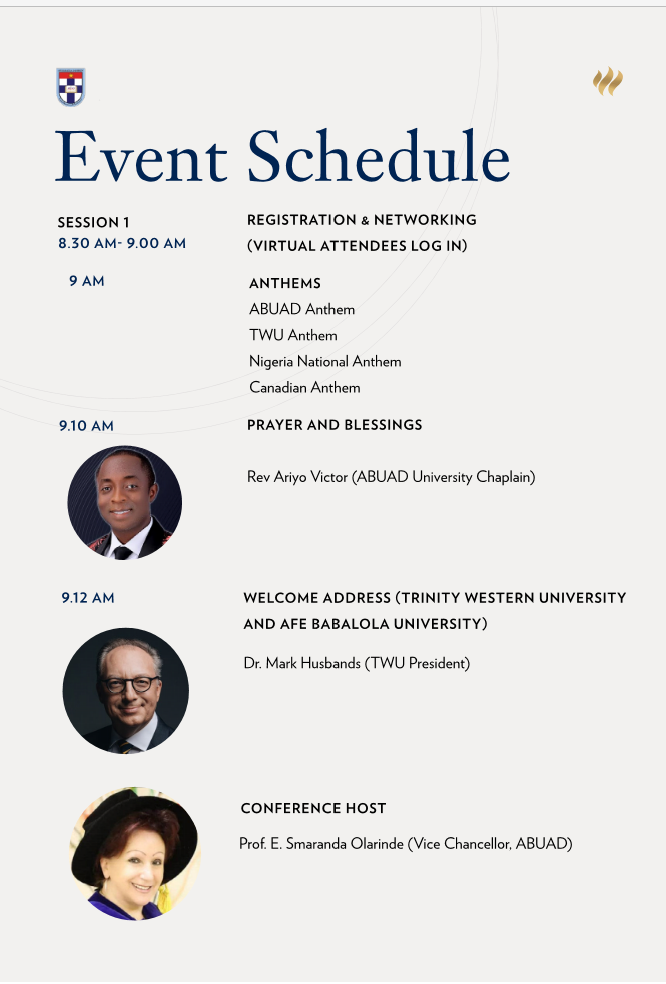
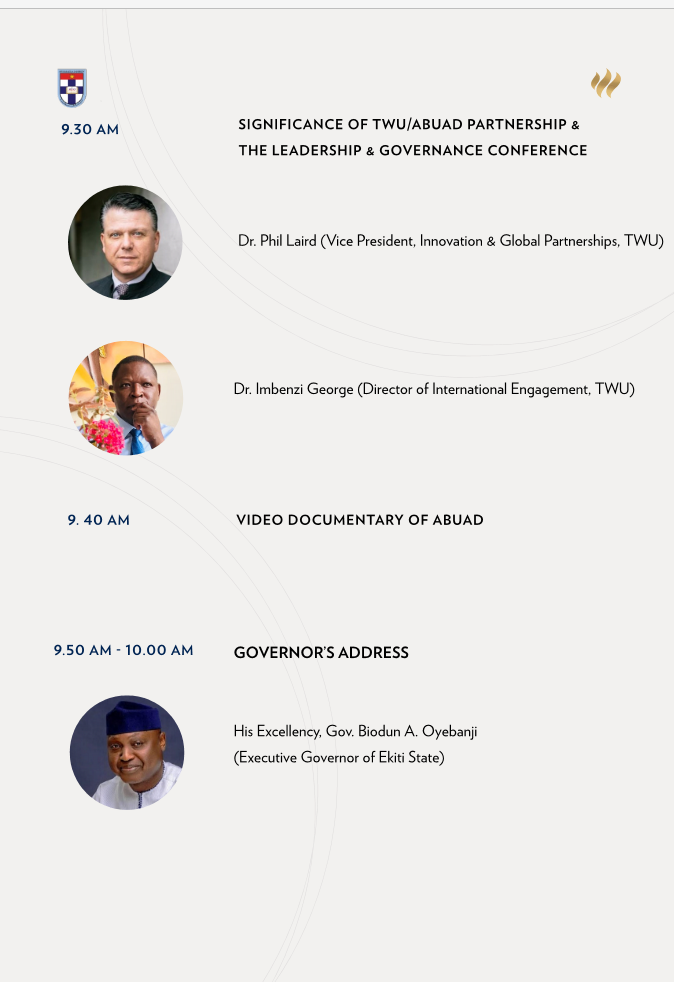
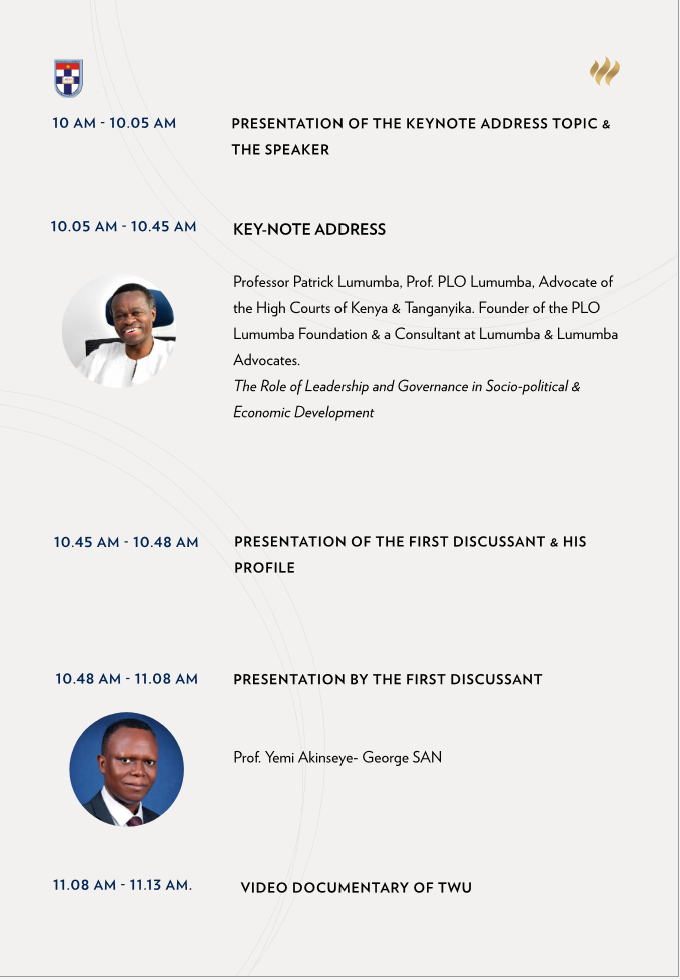
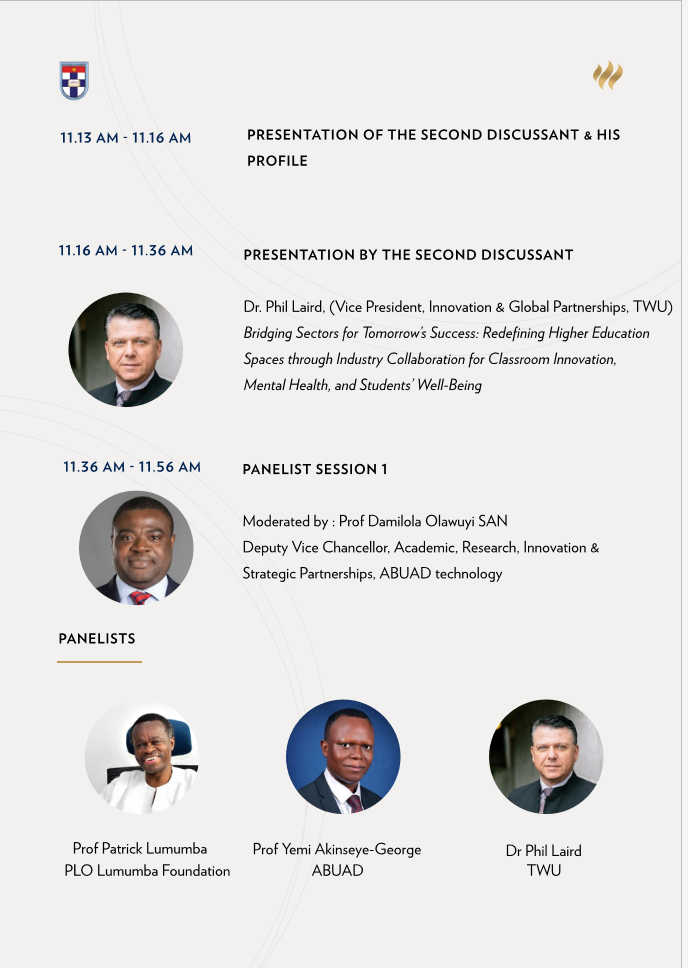
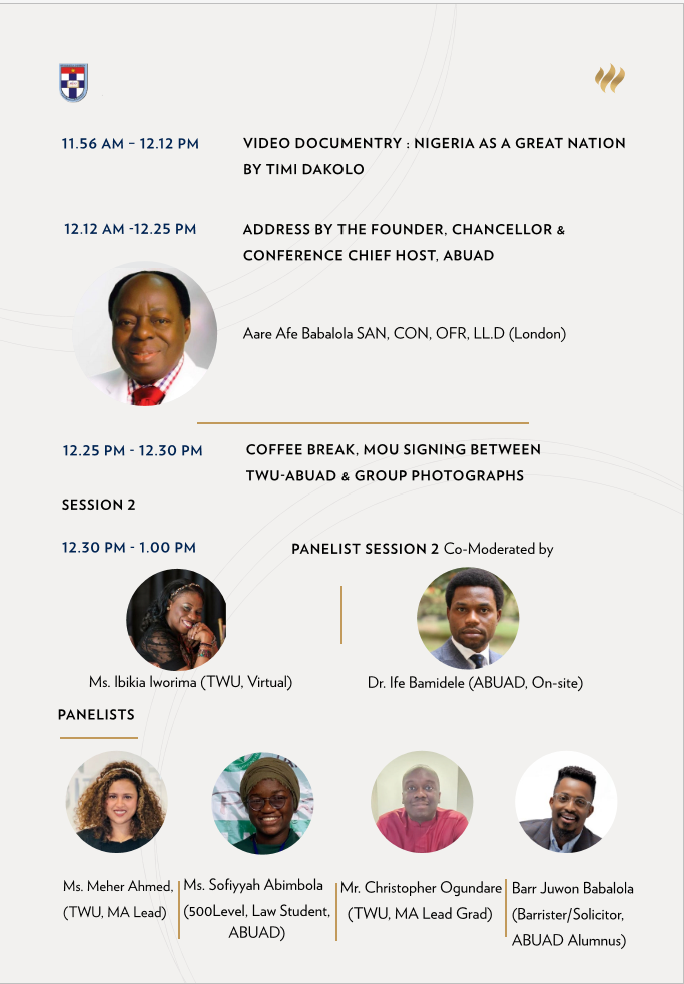
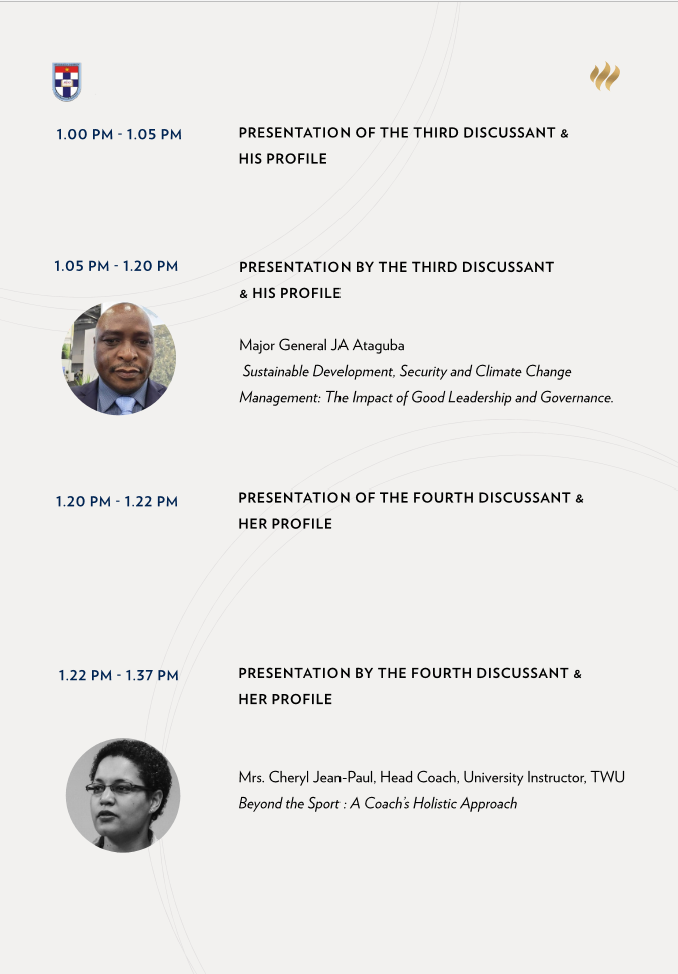
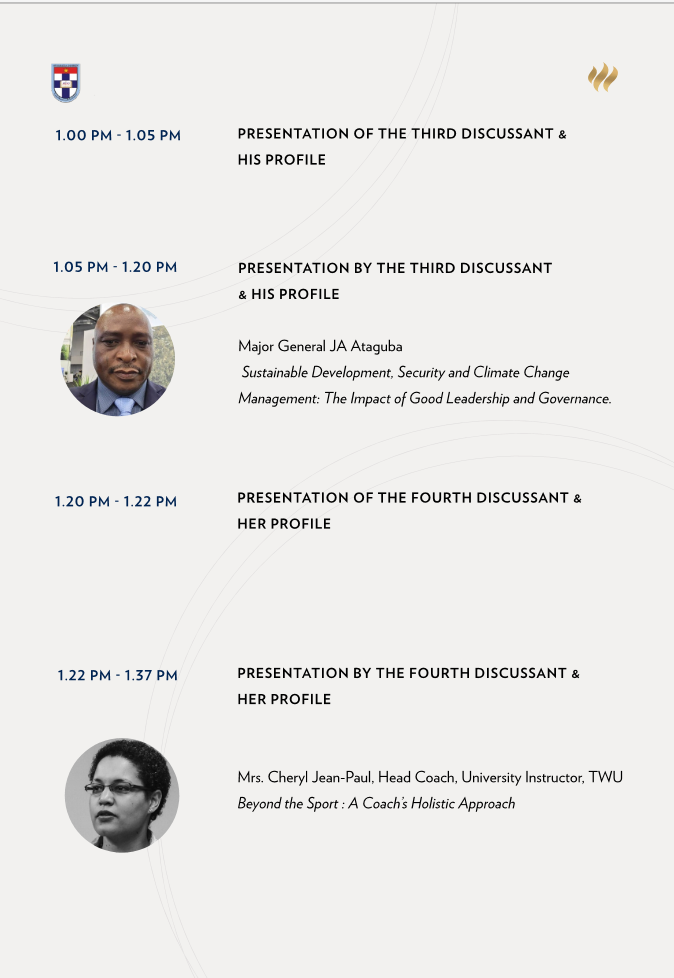
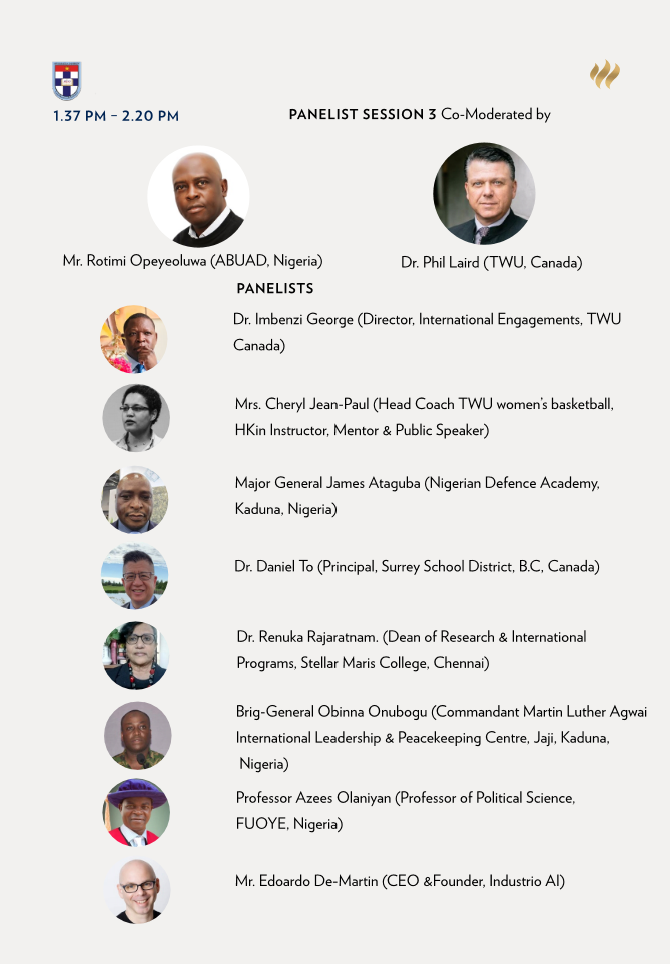
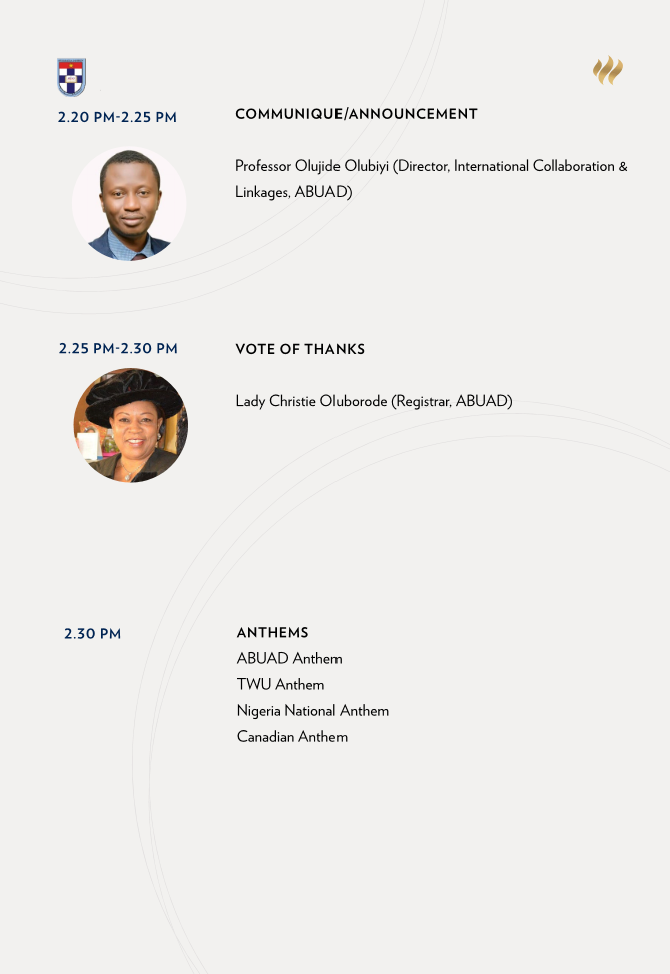
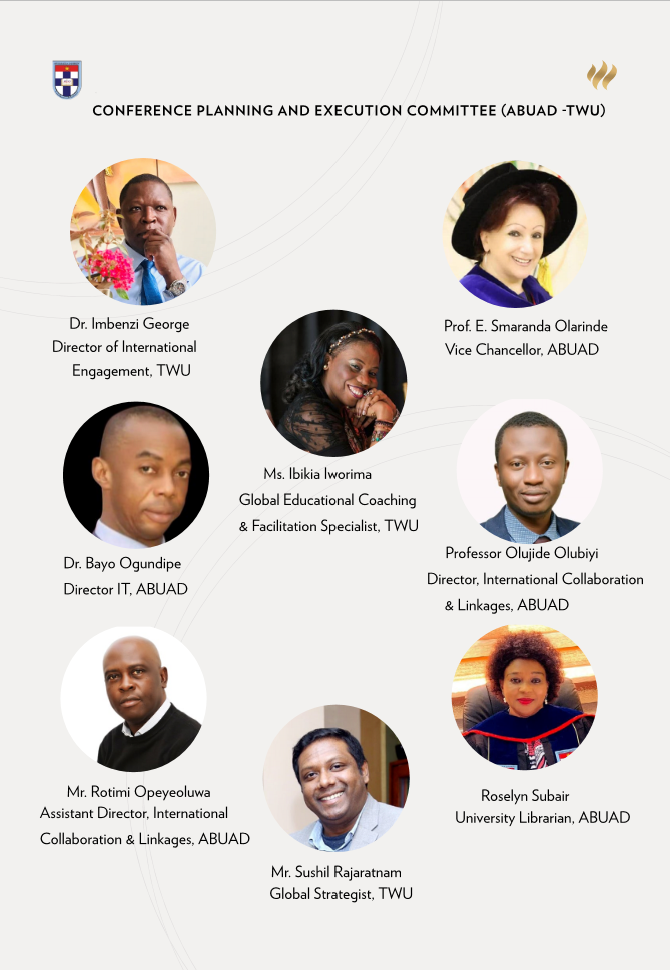
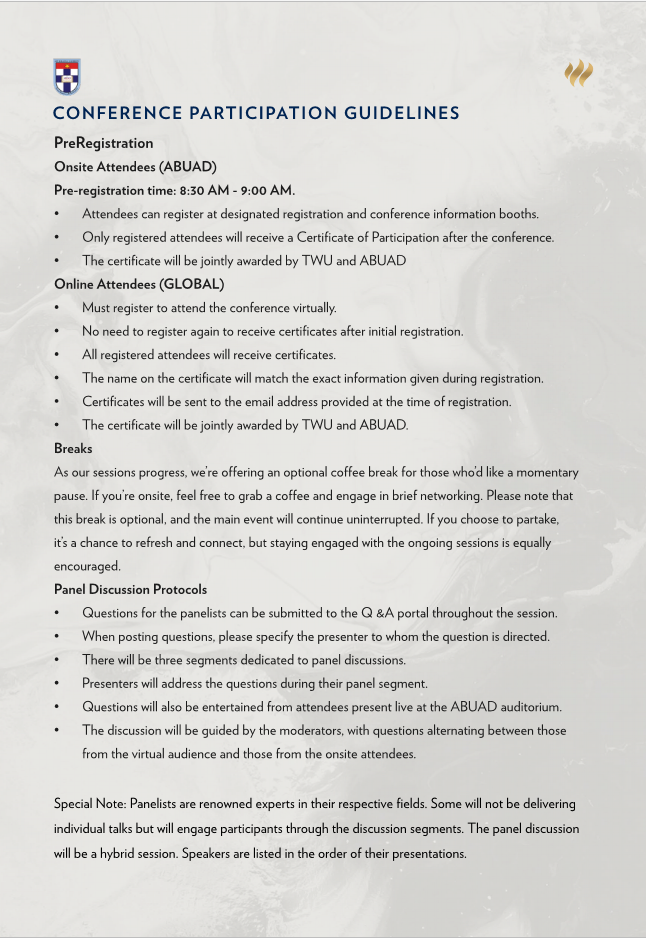

https://www.vanguardngr.com/category/columns/afe-for-vanguard/
https://tribuneonlineng.com/category/afe/page/4/
On 11 November 2021, he discussed “challenges of democracy in terms of poverty and education.” It reads thus: “POVERTY and poor education continue to be two impeding factors to true democracy in Nigeria. Democracy as a concept of governance finds the best expression when the masses and members of the grassroots fully participate in the decision-making process, without any influence whatsoever.

According to a study, it further encompasses an ideal situation where the leadership does not arrogate to itself all wisdom in decision-making; members of the leadership do not manipulate or hoard information but rather share information so that it becomes a source of group power; a lot of debate and discussion take place before decisions are made; and criticism is not only welcomed but also encouraged.” Click on the link below to continue reading ... https://www.vanguardngr.com/2021/11/challenges-to-true-democracy-poverty-and-poor-education-2/?fbclid=IwAR0-nGhT0bEEn_IdM8PG5jqGV9iUOlLOex3RGH4KxF1RtNQeiSIBXlKr8fs
On Thursday, 14th October, 2022, at a policy meeting with the British Deputy High Commissioner in Nigeria, Ben Llewellyn-Jones, Chief Afe Babalola (SAN), a legal luminary and President of Afe Babalola University, Ado Ekiti (ABUAD), gave an insight into how the University of London, his alma mater, laid the foundation for his greatness in life.
The nonagenarian revealed this in Ado Ekiti while receiving the British Deputy High Commissioner in Nigeria, Ben Llewellyn-Jones, who was on an official visit to Afe Babalola University in #AdoEkiti as part of the vision of the university to enhance its strategic partnership with the United Kingdom (UK), thereby fulfilling the United Nations Sustainable Development Goals 1, 4 and 17 tagged “No Poverty”, “Quality Education”and “Partnership for the goals”. He met the founder, Aare Afe Babalola, SAN, and discussed the role of universities in the development of #Nigeria‘s education sector and how graduates can make a difference globally.
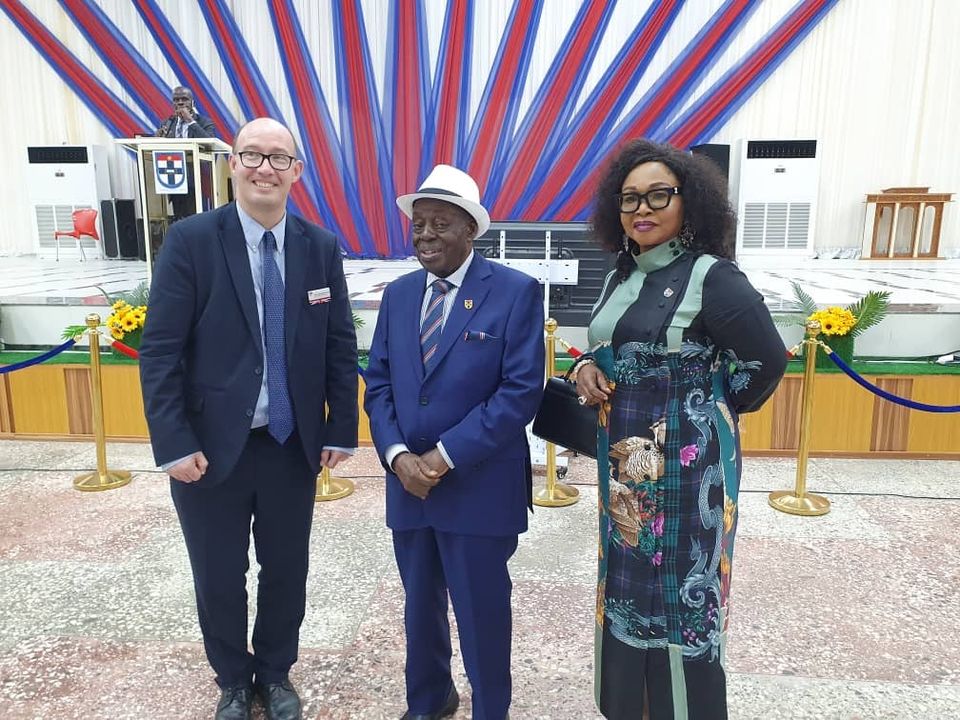
During the visit, the Founder, Aare Afe Babalola, SAN traced the success of his early life to Britain, narrated that, “I was once a farm boy, with no intention of going to school.” click below to continue reading…
Afe Babalola University Ado-Ekiti (ABUAD) is honored to have received the UNESCO Chair in Entrepreneurship Education for Sustainable Development. The Chair was officially inaugurated on October 4, 2019, in Owolabi Hall at ABUAD by Mrs. Florence Oguah, the Secretary General of the Nigerian National Commission for UNESCO.
The UNESCO Chair planned four annual activities, and efforts will be made to secure the necessary financial resources for their implementation. Below is the ABUAD/UNESCO 2024 report, along with the embedded document.
2024-UNESCO-MONITORING-INSRUMENTS-for-ABUAD-UNESCO-CHAIR-FOR-ENTREPRENEURSHIP-EDUCATIONIn 2024, ABUAD, in conjunction with the Ekiti State Government, participated in policymaking at the local, regional, national, and/or global level to implement programmes and policies to end poverty in all its dimensions. Continue to read the attached policy document.
2024-ABUAD-AND-EKITI-STATE-GOVERNMENT-POLICY-DOCUMENT-ON-POVERT-ERADICATION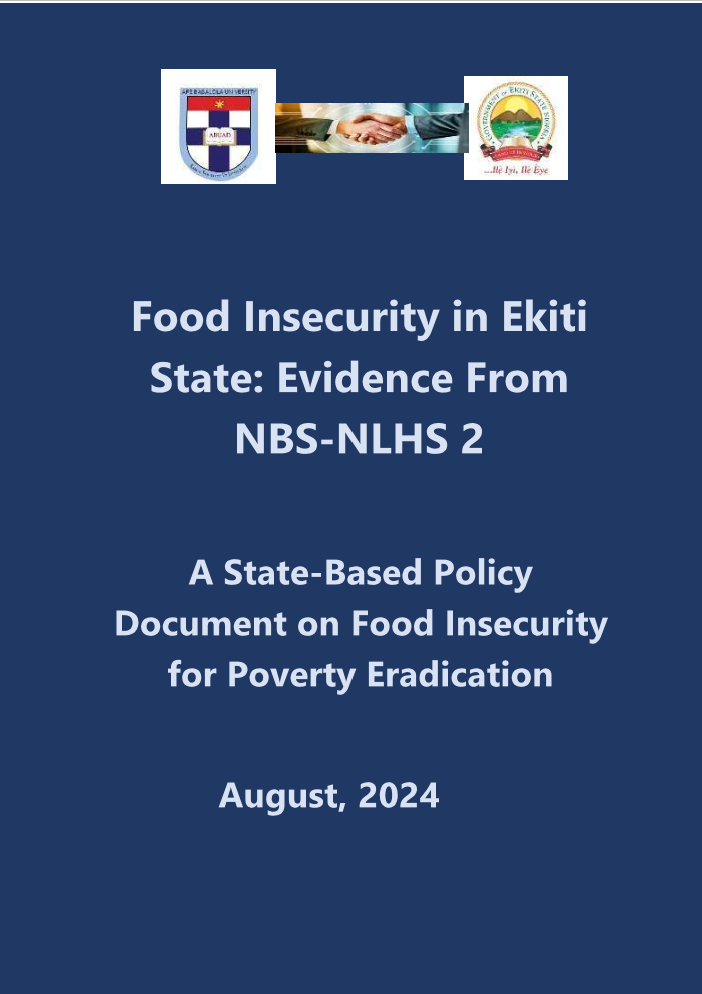
Read more on UNESCO Chair on Entrepreneurship Education for Sustainable Development Report
RELATED LINKS
https://seer.ufrgs.br/austral/about/editorialTeamBio/79350
https://ng.linkedin.com/in/demola-akinyoade-73b2b929
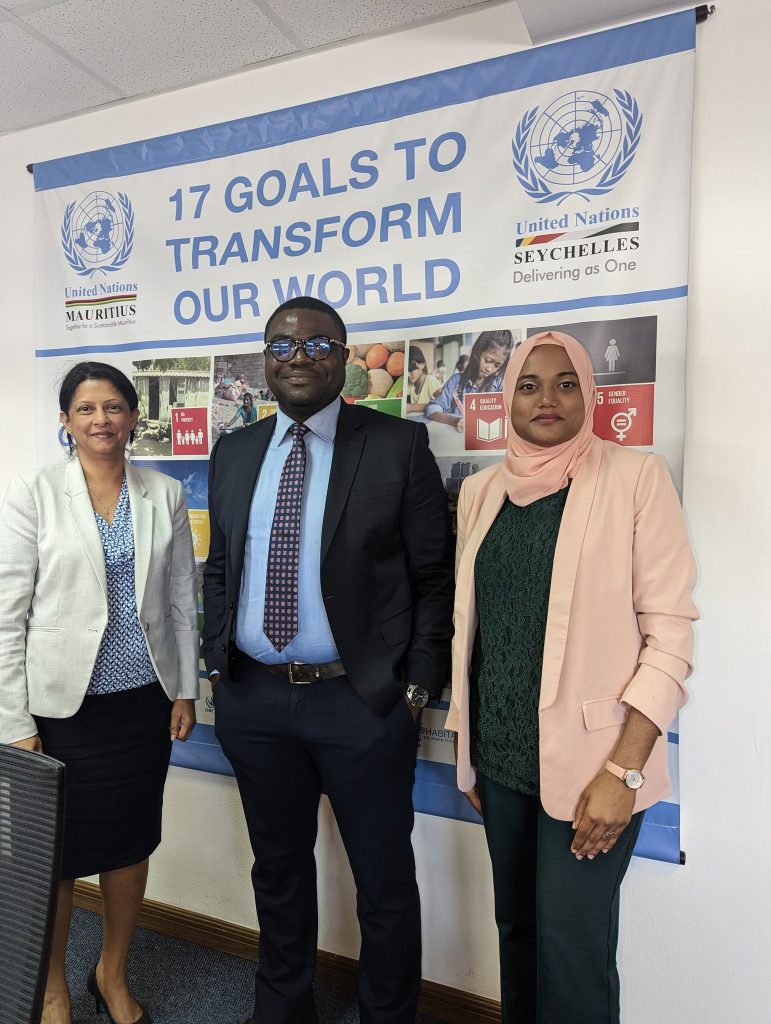
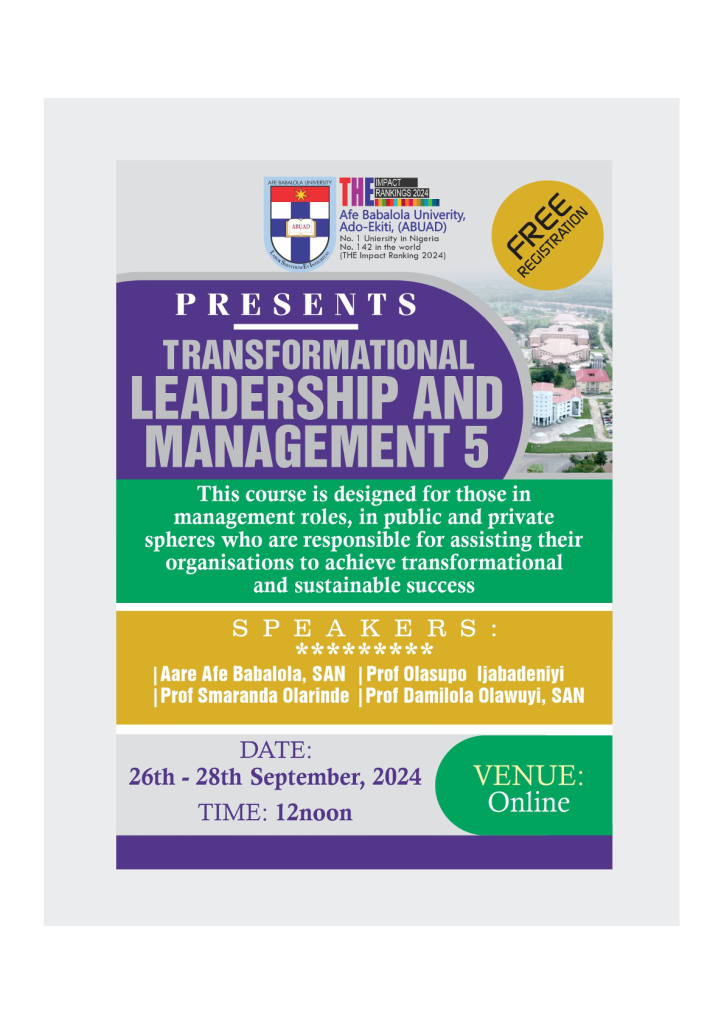
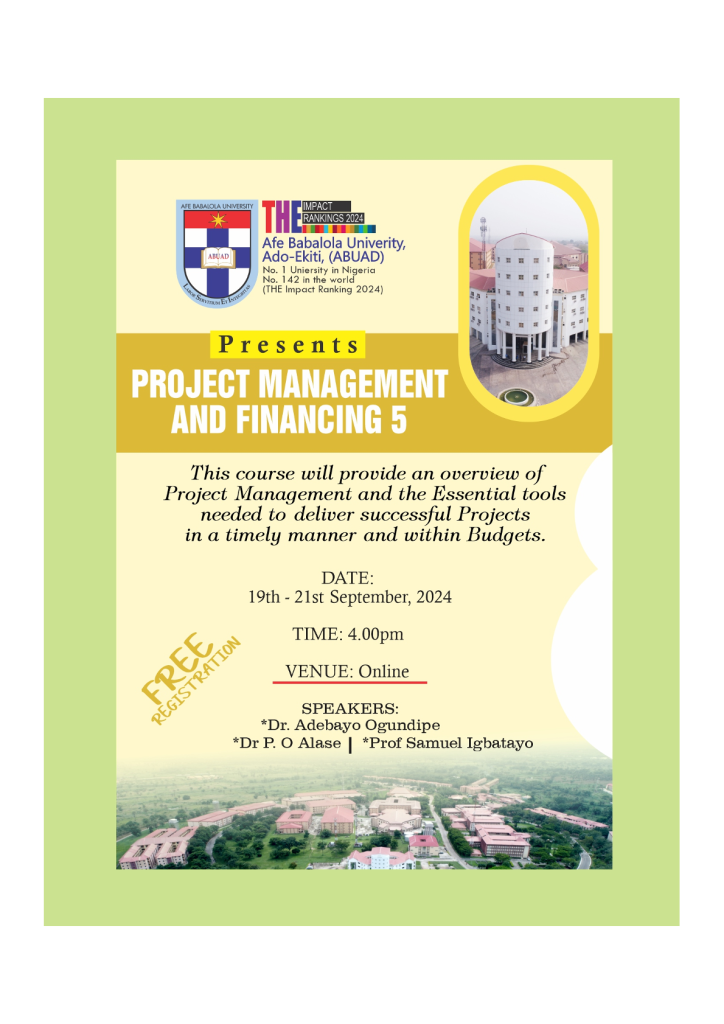
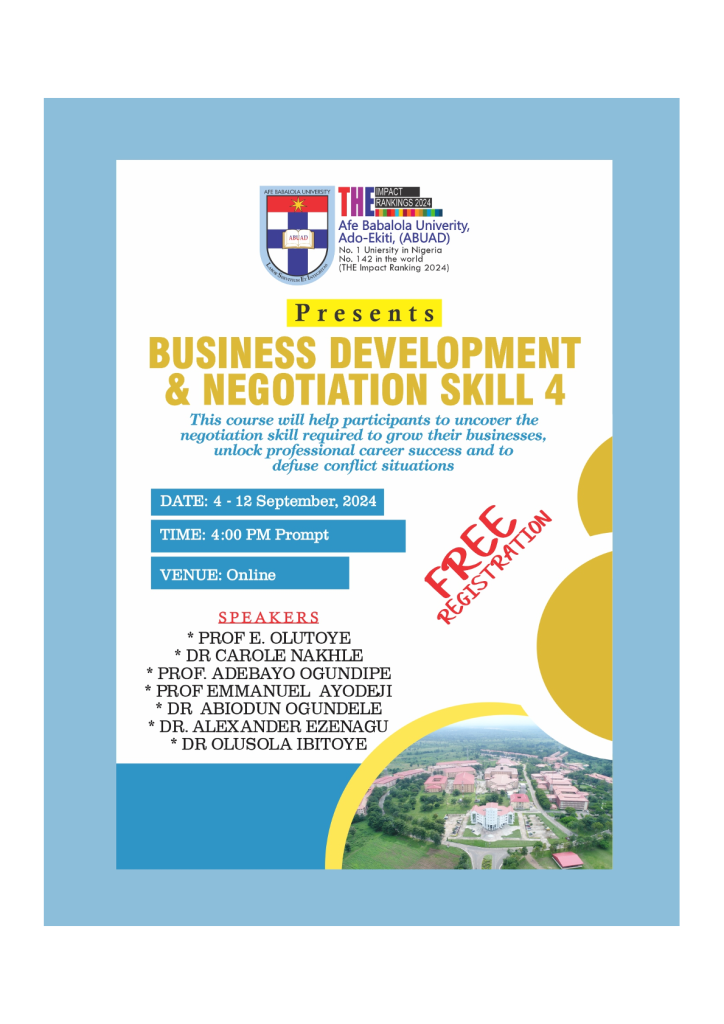

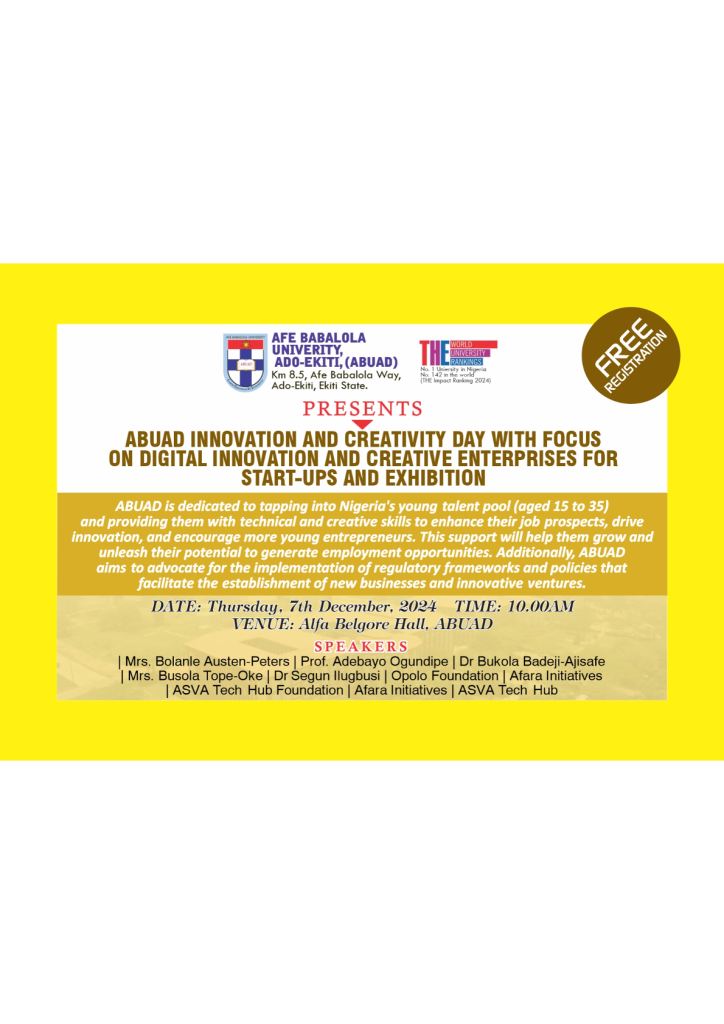

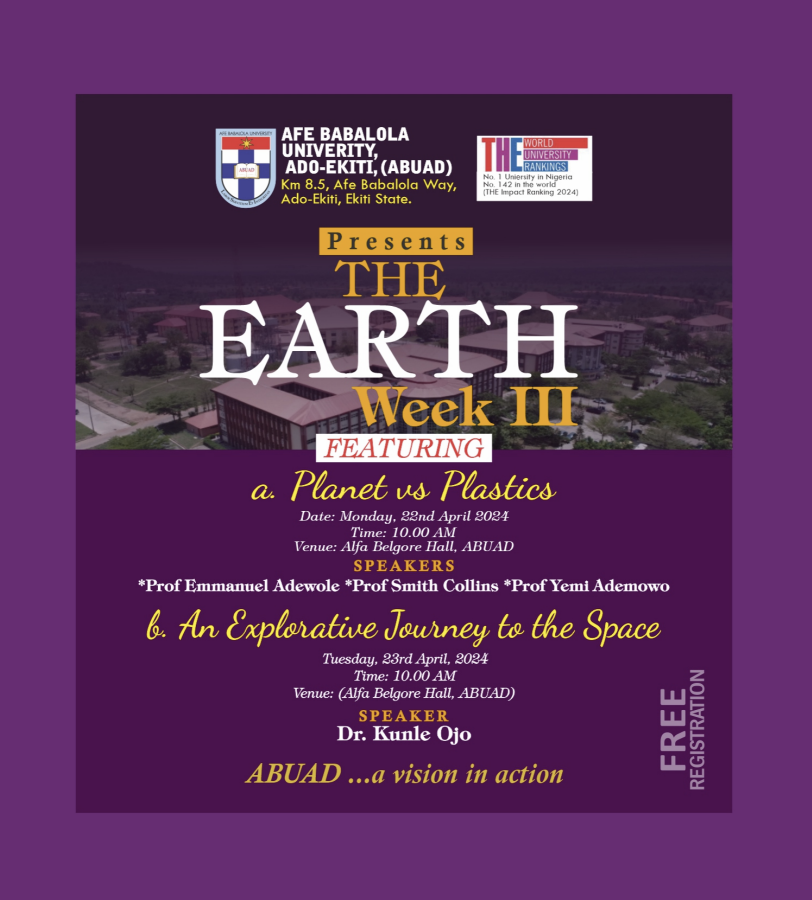

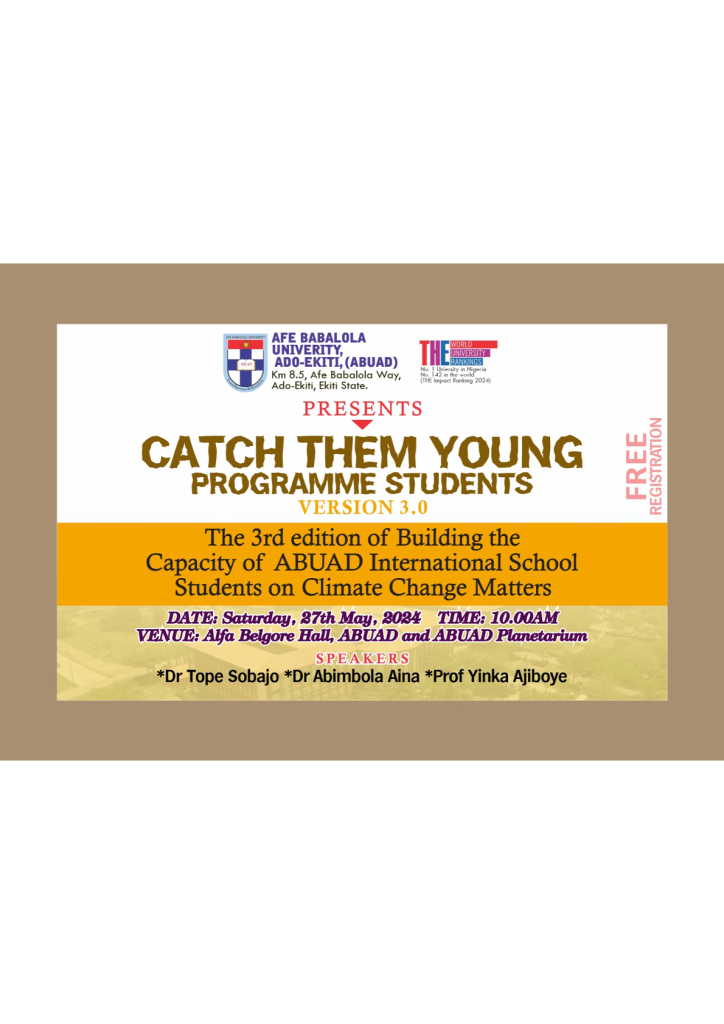
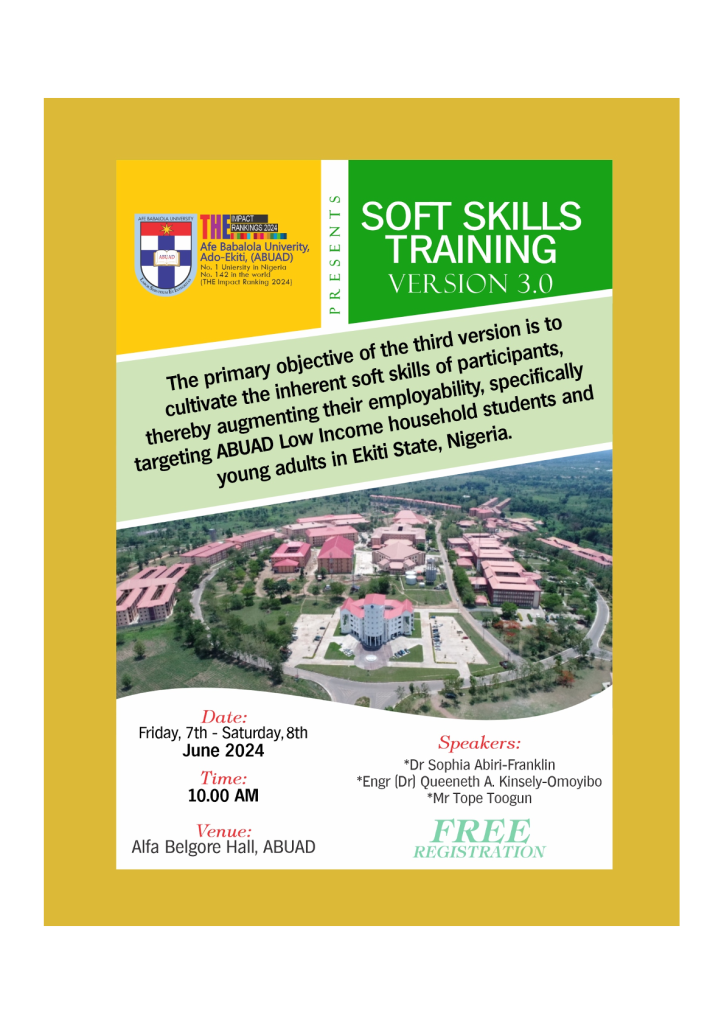
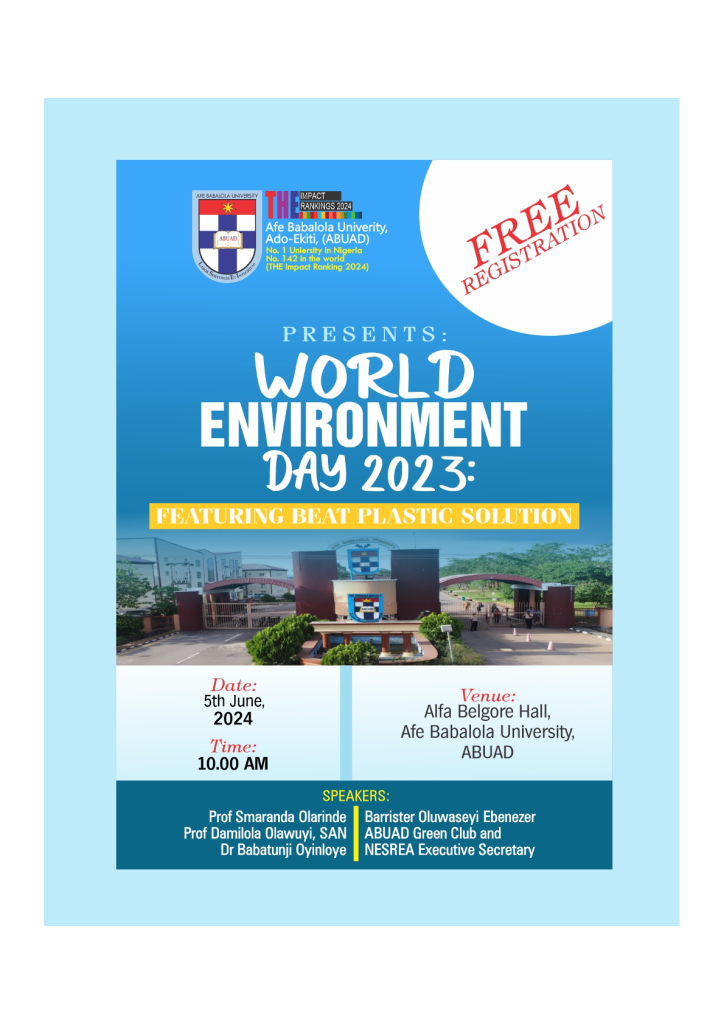
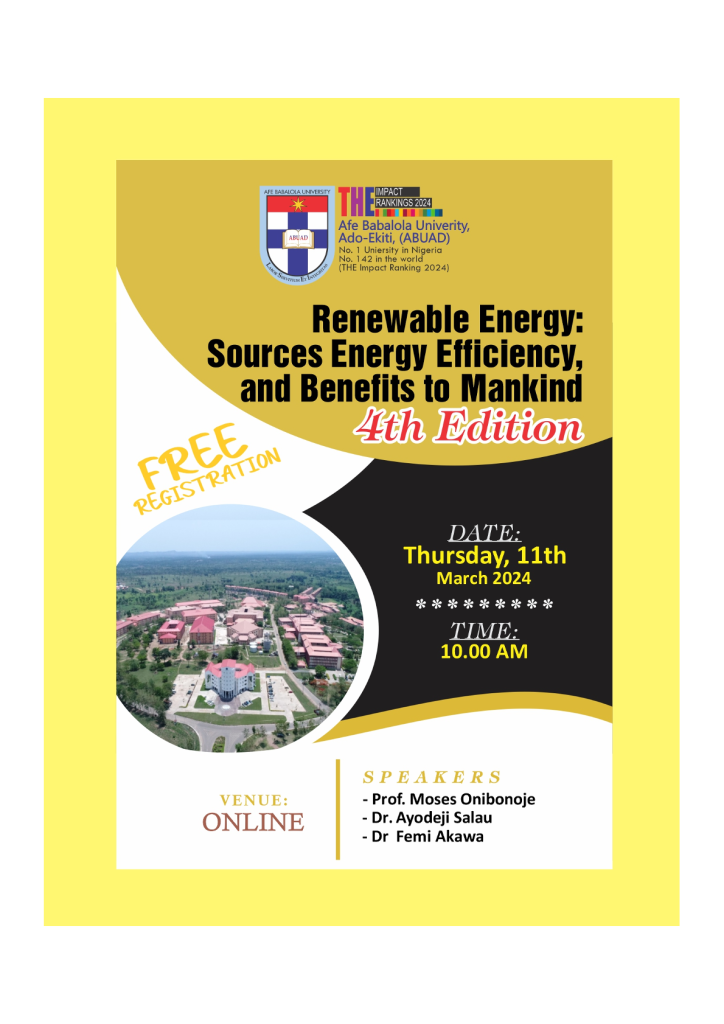
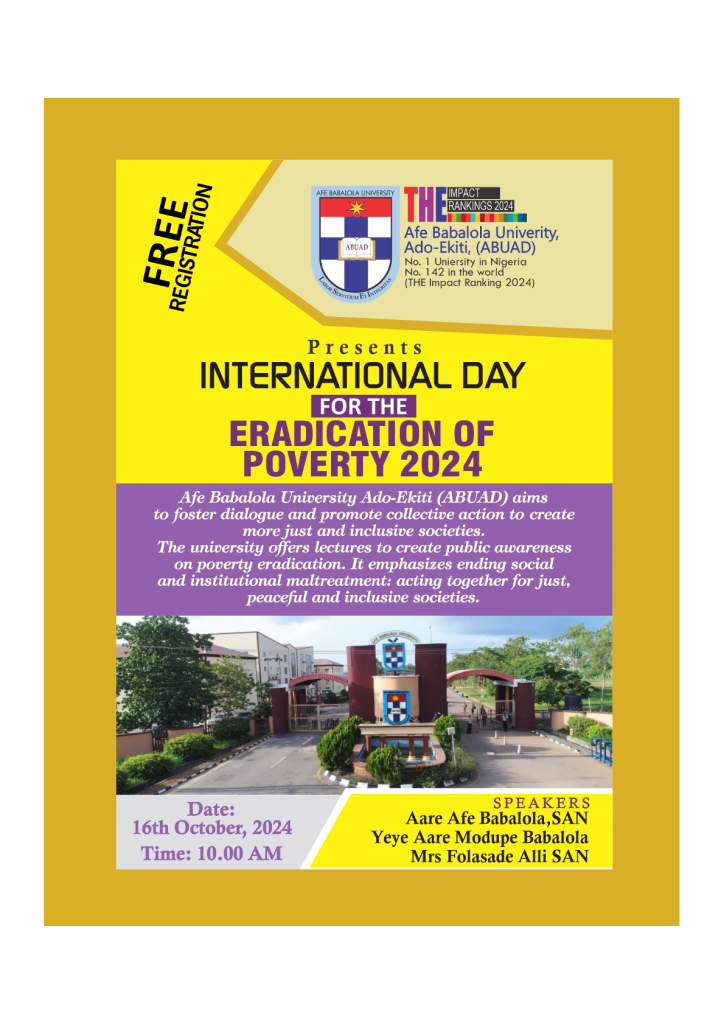

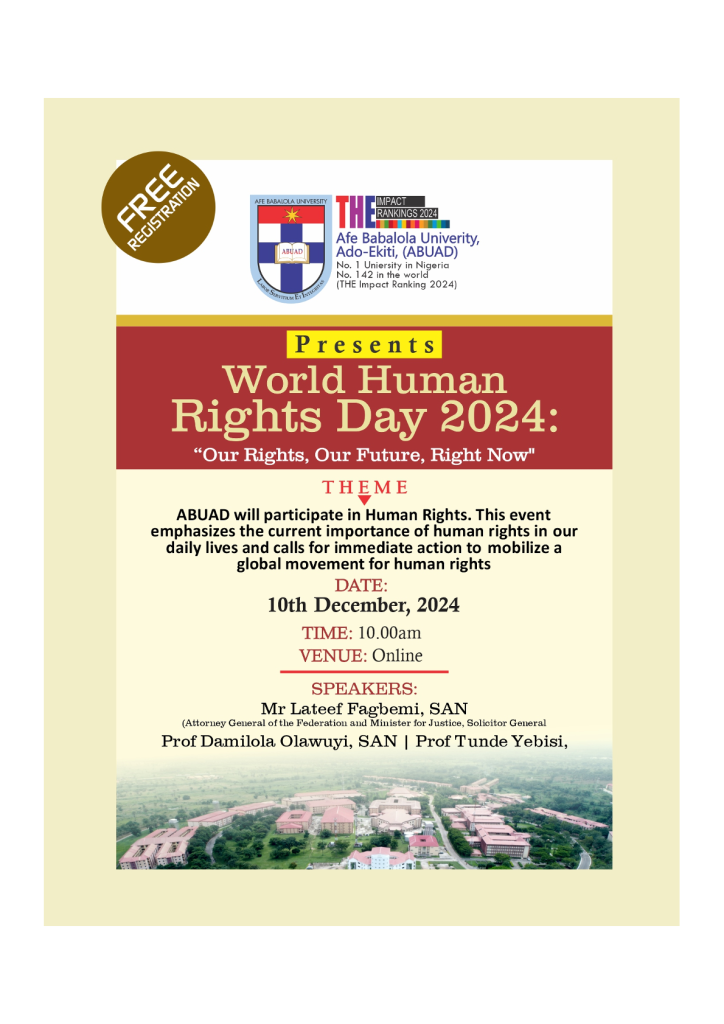
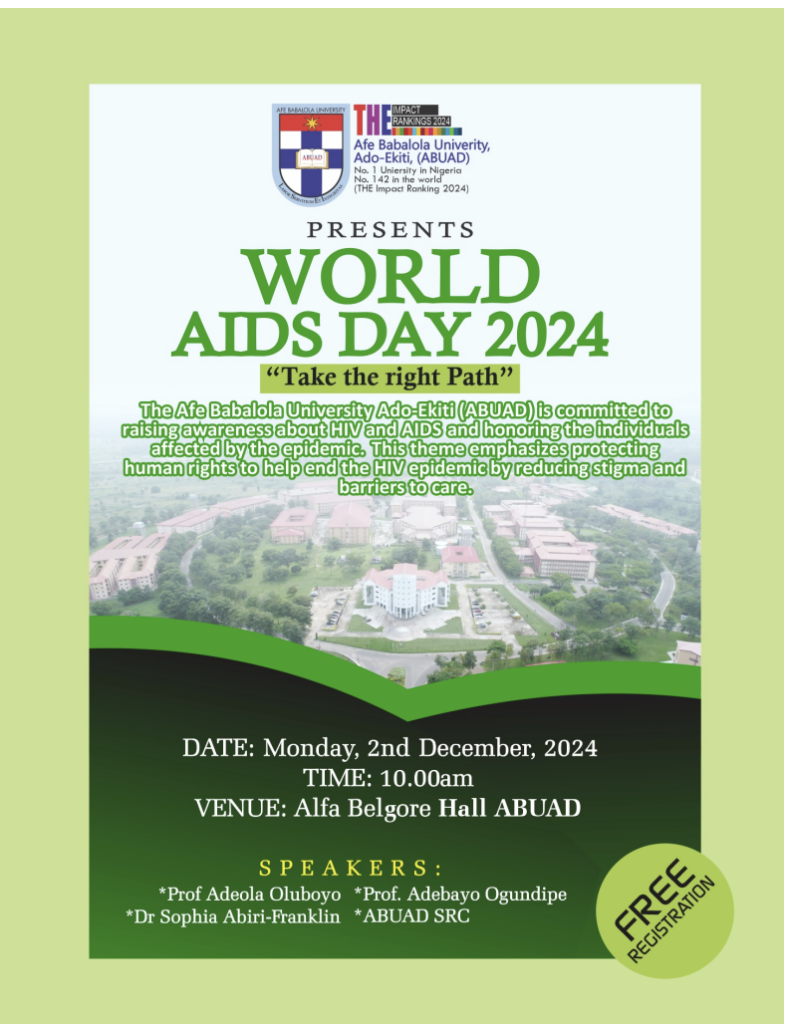




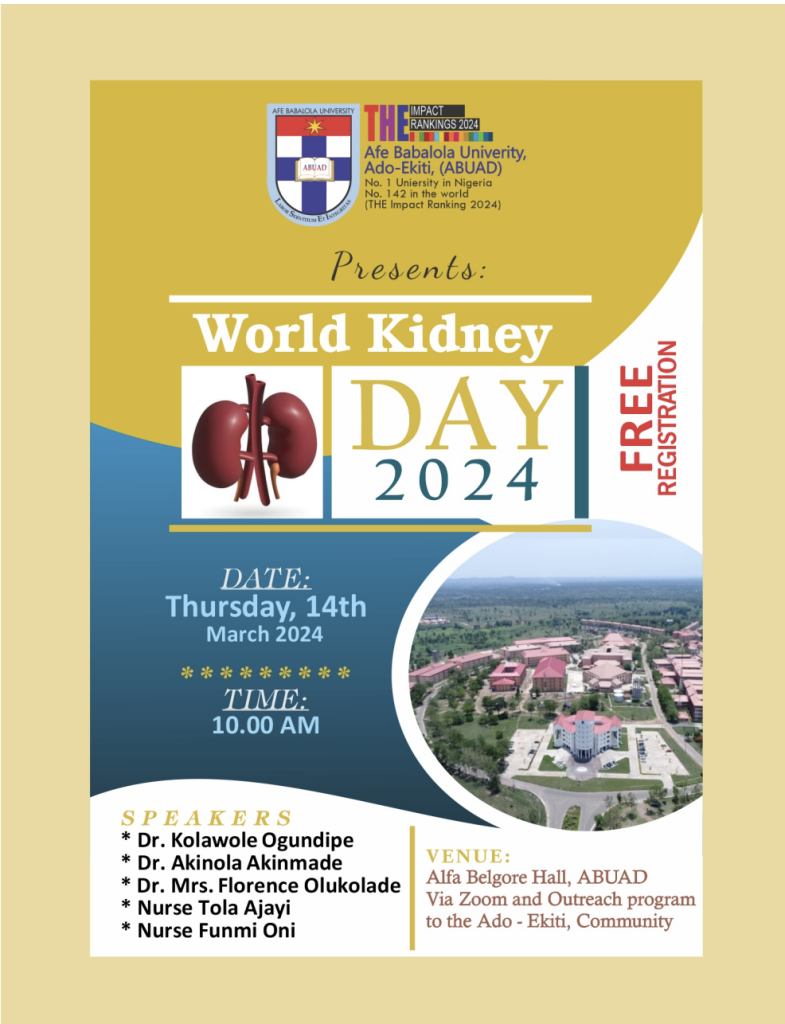

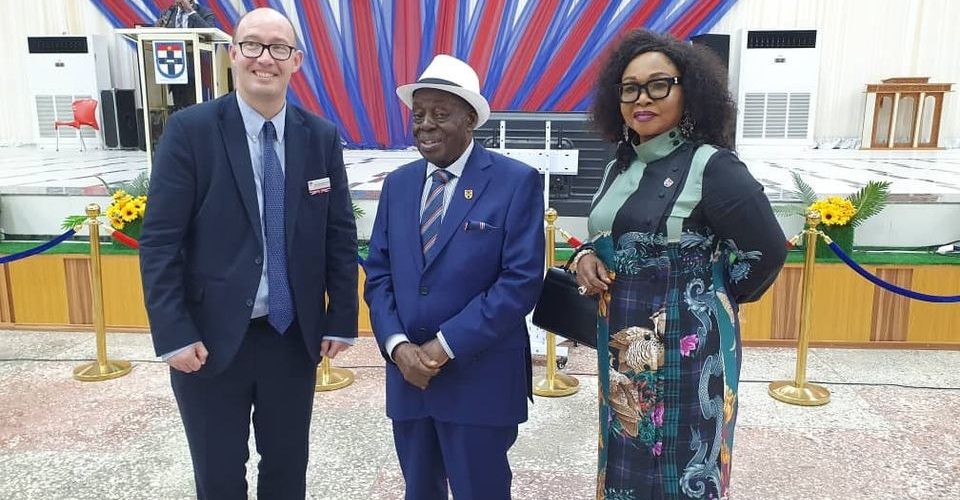
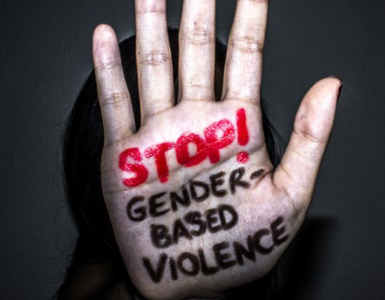
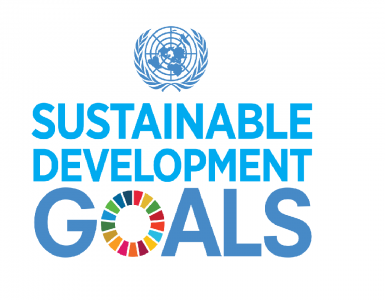
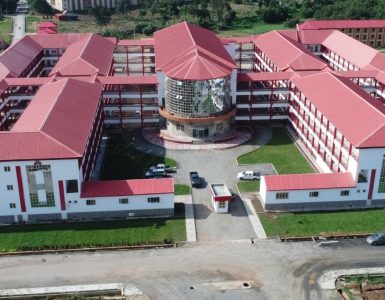











Add comment